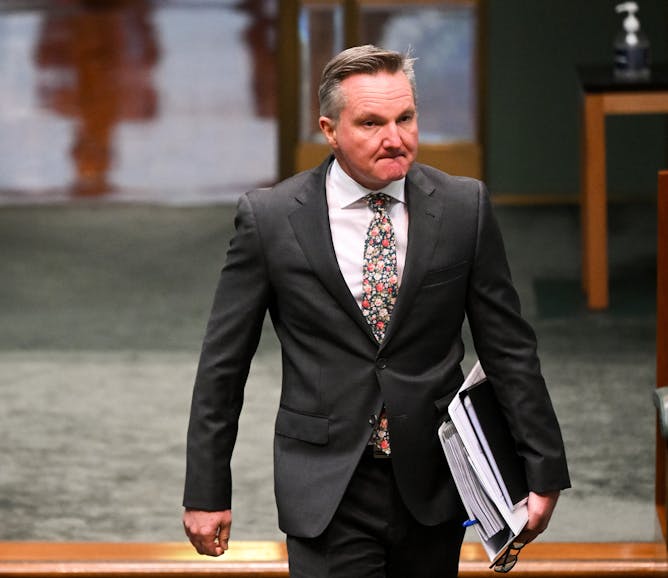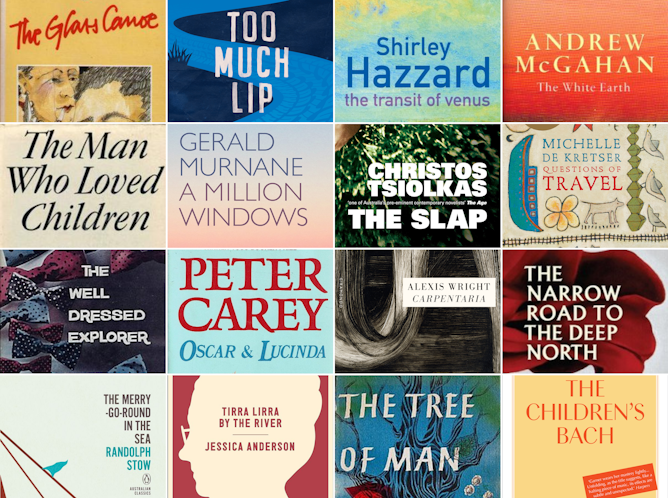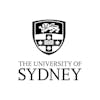|
At the end of every year, The Conversation publishes an anthology of our most compelling and thought-provoking essays published over the previous 12 months.
It’s not just a curated selection of excellent writing (if we may say so ourselves), but a review of the year that was, as seen through the eyes of our academic experts across Australia and New Zealand.
This year’s book, 2023: A Year of Consequence, which is on sale now, was even more challenging to put together than most, given the timing of the Voice to Parliament referendum at the end of the year.
We were able to include two essays by First Nations authors Sana Nakata and Bhiamie Williamson right at the deadline, which analysed what the rejection of the Voice – and the opportunity offered by the Uluru Statement from the Heart – meant to First Nations communities across the country.
This was a year of consequence for other reasons, as well. When the devastating war broke out between Israel and Hamas in October, Eyal Mayroz, an Israeli peace and conflict studies expert, wrote a piece examining how we got to this point – and what needs to happen to bridge the gap between the two sides. His essay, which received quite a bit of media attention, is included in the book.
It was also a year of economic uncertainty at home. We cover this in the book with essays on housing inequality, wage growth and the state of the economy. On the tech front, our authors tackle thorny questions related to artificial intelligence and life-extension research.
We’ve also included lovely long reads on the themes of loss and love from our Books and Ideas section. A piece by Kevin John Brophy, shortlisted for the Calibre Essay Prize, focuses on his quest for answers about the hidden life of his violent father, before and during the second world war.
As we look ahead to a new year, we hope this book provides some perspective on the challenges, conflicts and weighty decisions we’ve faced in the year that’s passed – both as a society, and as individuals.
As always, we’d like to thank you as readers for supporting our mission – and we hope to continue inspiring and surprising you in the year to come.
PS: If you happen to be in Canberra, Michelle Grattan and Peter Martin will be discussing these big issues – and more – in a live event on Tuesday, December 5. Book your tickets here.
|

|
Justin Bergman
International Affairs Editor
|
|

Tristan Dunning, The University of Queensland; Martin Kear, University of Sydney
More than 450 Palestinians have been killed in the West Bank since the start of the year, the most since 2005.
|

Isaac Gross, Monash University
Average prices fell in October, driven down by dives in the price of petrol and overseas travel, and an increase in Commonwealth Rent assistance.
|

Jacqueline Peel, The University of Melbourne
New emissions projections bode well for Australia’s climate efforts – but our fossil fuel exports continue apace.
|

Toby Walsh, UNSW Sydney
The public release of the chatbot has led to a global conversation about the risks and benefits of AI – a conversation few people were having just a few years ago.
|

Jemma Skeat, Deakin University; Natasha Ziebell, The University of Melbourne
Since ChatGPT was released a year ago, we have been asking Australian university students and academics about their use of generative AI.
|

Michelle Grattan, University of Canberra
The Climate statement, prepared by departmental officials, will be released by the Minister for Climate and Energy Chris Bowen on Thursday with updated security warnings.
|

Jessica Pace, University of Sydney; Nial Wheate, University of Sydney
Two antiviral drugs are available in Australia, but one is prescribed more routinely. Here’s what you need to know as we navigate the eighth COVID wave.
|

Robyn Eckersley, The University of Melbourne; Erin Fitz-Henry, The University of Melbourne
Australia’s clean energy transition cannot succeed unless the government opens debate and decision-making to many more voices.
|

Ari Mattes, University of Notre Dame Australia
New independent Aussie film Christmess is emotionally engrossing and satisfying in its combination of melancholy tinged with the vague outlines of hope.
|

Nicholas Jose, University of Adelaide
A major new history of the Australian novel is shaped by the recent renaissance in Indigenous writing, but there are some notable omissions.
|

Tony Milligan, King's College London; Lena Springer, King's College London
From Plato to Schopenhauer, the philosophers have vastly different takes on the age old question of whether to procreate.
|

Kylie Baldwin, De Montfort University
Talking about plans for childbearing is still seen as a taboo.
|

Andrew Kenrick, University of East Anglia
We must be careful not to misgender or misidentify people of the past – especially if our only evidence for how they might have identified comes from hostile writers.
|
Politics + Society
|
-
Adrian Beaumont, The University of Melbourne
A proposed Senate election reform would be little to fix the unequal representation of the states and territories in the upper house - in fact, it would make it worse.
-
Lucas Walsh, Monash University; Blake Cutler, Monash University; Thuc Bao Huynh, Monash University; Zihong Deng, Monash University
We thought after the worst of a global pandemic, young people’s outlook for the future might have improved. Our survey shows they’ve actually gotten worse.
-
Masoumeh Sara Rahmani, Te Herenga Waka — Victoria University of Wellington; Peter Adds, Te Herenga Waka — Victoria University of Wellington
More than half of Māori identified as having ‘no religion’ in the latest census. Our new research examines what could be behind the sharp rise in Māori atheism.
|
|
Health + Medicine
|
-
Minyon Avent, The University of Queensland; Fiona Doukas, University of Sydney; Kristin Xenos, University of Newcastle
Australia is one of the highest users of antibiotics in the developed world. So when do we actually need antibiotics to treat an infection? And when should we avoid them?
-
Kylie Fraser, Deakin University; Alison Spence, Deakin University; Karen Campbell, Deakin University; Penny Love, Deakin University
The vegetable content of meal kit meals mean it’s more about the meals you choose and less about what company to use.
|
|
Environment + Energy
|
-
Louis Backstrom, University of St Andrews; James Watson, The University of Queensland
Researchers used ‘citizen science’ birdwatching data to rank Australian species. Among the most elusive birds were ‘hide and seek’ champions and a few possibly headed for extinction.
|
|
Education
|
-
Kathleen McGuire, Australian Catholic University
While we want to support our loved ones’ extracurricular activities, perhaps you secretly curse sitting through yet another concert or carols sing-along.
|
|
Arts + Culture
|
-
Ramon Lobato, RMIT University; Alexa Scarlata, RMIT University
New legislation will require smart TV manufacturers to ensure we can easily find local broadcasters when we turn on our TVs.
-
Megan Nash, University of Sydney
The new Australian series The Artful Dodger is a surgical reworking of Oliver Twist, where the savagery is played for laughs.
|
|
Business + Economy
|
-
Alysia Blackham, The University of Melbourne
Planned legal changes could make it easier for people to take workplace discrimination cases to court by eliminating often prohibitive costs.
-
Christian Eva, Australian National University; Jessica Harris, Griffith University; Kerry Bodle, Griffith University
We interviewed Indigenous business owners, managers and employees to explore how these businesses support strong levels of Indigenous employment.
|
|
| |
|
|
|
Auckland University of Technology
Auckland, New Zealand
•
Full Time
|

|
|
The Conversation AU
Melbourne VIC, Australia
•
Full Time
|

|
|
The Conversation AU
Melbourne VIC, Australia
•
Full Time
|

|
|
The Conversation AU
Melbourne VIC, Australia
•
Full Time
|

|
|
|
|
| |
| |

|
| |
| |
| |
Featured Events, Courses & Podcasts
|
View all
|
|
1 January 2023 - 7 October 2026
•
|

|
|
|

|
2 December 2023
•
The University of Sydney
|

|
6 December 2023
•
Sandy Bay
|

|
|
|
|
| |
| |
| |
| |
| |
|
|